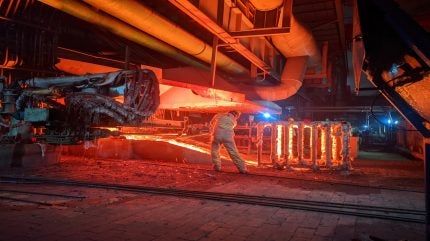
Indonesia’s Morowali Industrial Park, a nickel-producing hub on Sulawesi Island, is facing a production halt and intensified scrutiny over nickel extraction methods following a landslide last month, reported Bloomberg.
The incident has raised concerns about the safety of high-pressure acid leaching (HPAL) methods used in nickel extraction and the future of a critical supply source for the battery industry.
While HPAL is cost-effective and less carbon-intensive, it produces nearly twice the tailings, requiring careful waste management to avoid production disruptions.
The landslide occurred in a tailings area associated with PT QMB New Energy Materials, as reported by traders with knowledge of the matter. The incident resulted in two fatalities and one missing worker.
Nearby nickel producers have also reduced their output, although they preferred to remain anonymous due to the sensitive nature of the information.
Indonesia, responsible for more than half of the world’s nickel output, faces global supply risks if such outages continue, which is worrisome for battery manufacturers.
GEM, the largest shareholder of QMB, responded to a Bloomberg query, stating that the production drop was due to scheduled maintenance and national holidays rather than the landslide.
PT IMIP, the park manager, confirmed the landslide and casualties but denied any disruption to output, attributing the incident to prolonged heavy rainfall.
Nickel traders in South East Asia and China have expressed concerns about the potential for repeated disruptions, especially with the increasing adoption of HPAL, a method that allows for the use of lower-grade ore for metal extraction but generates high volumes of waste.
In the past five years, Indonesia has launched around ten HPAL plants, with Chinese investment and expertise playing a significant role.
The rise of HPAL plants, with their associated waste management challenges, could revive concerns over environmental and safety standards.
The Indonesian metals sector has witnessed several accidents since the rapid expansion of its nickel industry began a decade ago. The most severe was a smelter explosion in 2023 that killed 21 workers.
Australia-based Energy Shift Institute managing director Putra Adhiguna said: “These issues should not be treated as isolated cases in different companies. They reflect a broader industry problem.”
PT IMIP has announced measures to improve standards and reduce geological disaster risks including land reclamation, levelling and reforestation.
Despite these efforts, the full impact of the current production loss remains uncertain.
Insiders suggest that QMB, with shareholders such as Tsingshan Holding Group and Guangdong Brunp Recycling Technology, will likely experience reduced output in April due to the ongoing government investigation into the accident.
In the first quarter of the year, the plant shipped more than 25,000 tonnes of nickel, as per GEM’s statement.
In March 2025, the Indonesian Mining Association called on the government to rethink its proposal to raise royalty rates on mining products, citing growing operational costs and strained cash flows faced by miners.


